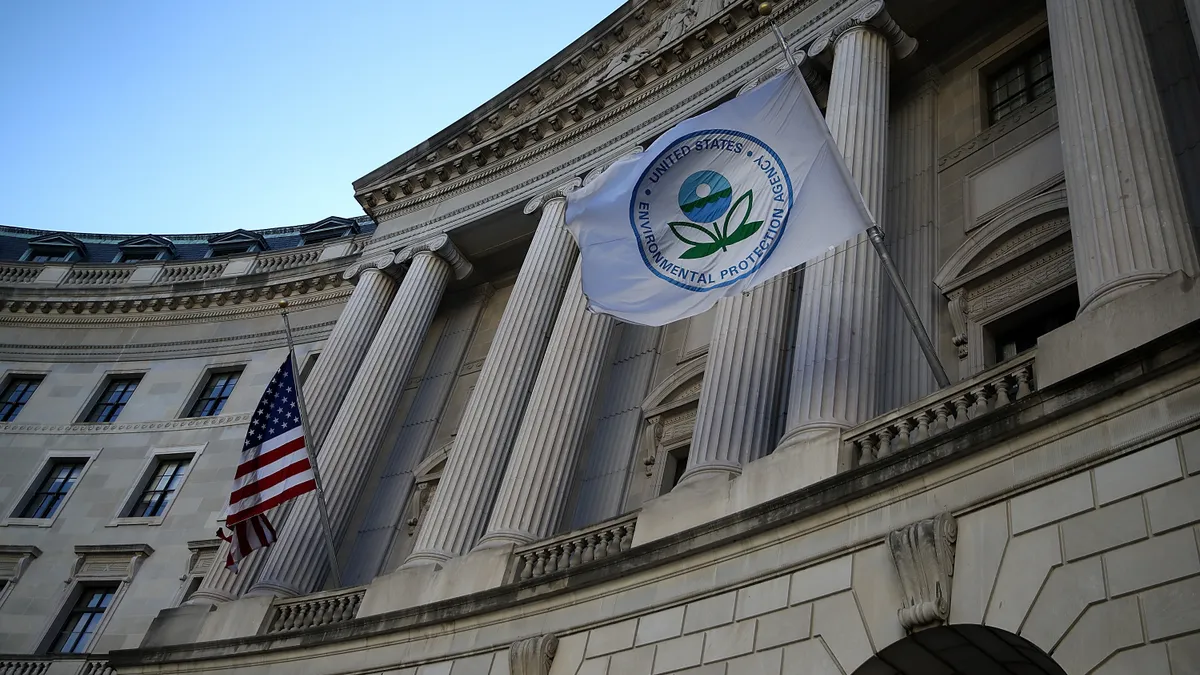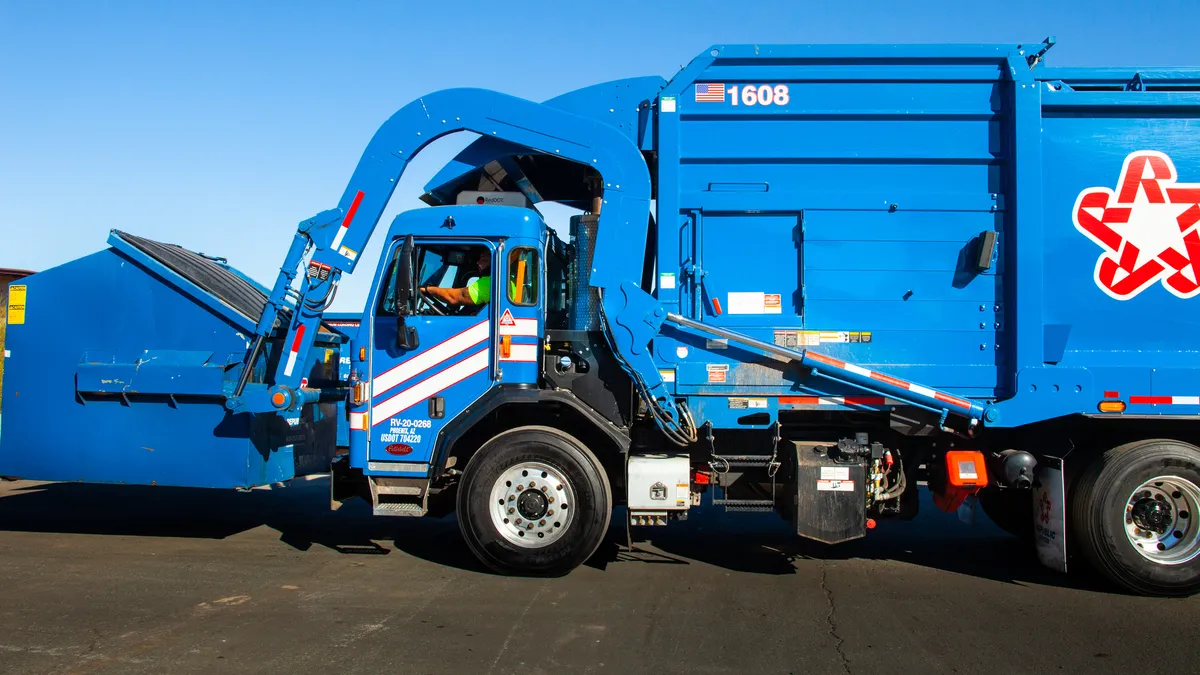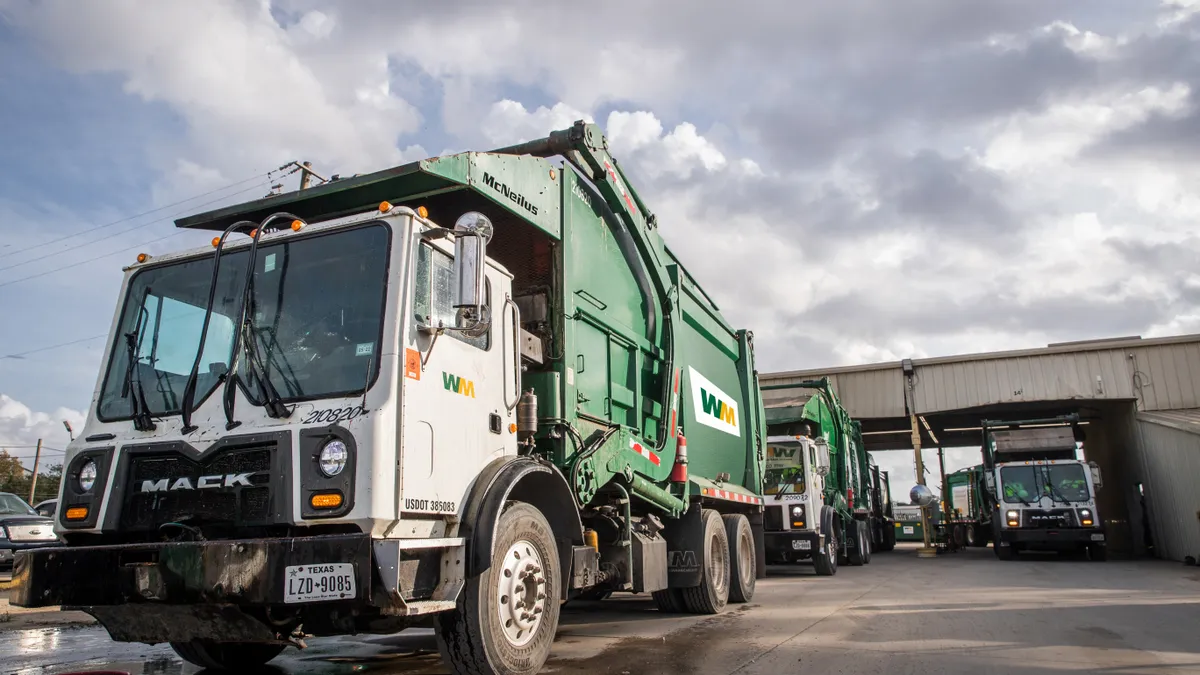One of the industry's top trade associations just got a new leader who may be fresh to solid waste, but is well-acquainted with safety, and ready to spread his experience throughout the country.
Darrell Smith was announced as the new president and CEO of the National Waste & Recycling Association (NWRA) in July. Industry professionals have been speculating about who would take the helm since previous president Sharon Kneiss resigned abruptly in November 2016. Kevin Kraushaar, vice president of government affairs and chapter operations, took over her duties on an interim basis as the search was conducted.
Coming from a position as the executive vice president of the Industrial Minerals Association - North America, Smith has a long background in environmental industries. He has also worked for the National Association of Shell Marketers, the American Chemistry Council and other trade organizations. With a doctorate in environmental science and policy from George Mason University, and accreditation as a certified industrial hygienist, Smith is seen as having relevant new perspectives for the waste and recycling industry.
Waste Dive spoke to Smith on Aug. 2, his ninth day on the job, to learn more about his plans for NWRA.
The following interview has been edited for brevity and clarity.
WASTE DIVE: What have you been up to so far since you started at NWRA?
DARREL SMITH: For these nine days I've been largely in listening mode. People have not been shy about sharing their views, and where they think things should be headed. I’m thrilled that I have such a talented and capable staff. One priority I have is to make NWRA a very happy, healthy and fun environment to work in. In addition, I've been hearing from a lot of our members. They’ve been reaching out to me and I've been reaching out to them. So far they are just fabulous people that are very excited. They're very confident and hopeful in the future of NWRA, as am I.
With the understanding that you're new to the role, are there any new directions or new programs you'd like to implement?
SMITH: Keeping in mind this is day nine, but when people take control of an organization or come into a new organization, they're always looking for ways to make their mark and that’s certainly on my mind as well. I'm also looking at things that are already working. I'm trying to identify those programs and not meddle in them. One of those programs is something that our members like and cherish — our chapter operations. I don’t have immediate plans to meddle too much in those operations. I think the chapter operations are one of the most valuable benefits of NWRA membership. I plan to be supportive and try to get out and meet everybody, try to see what has worked over the years. There are literally decades of experience in the chapter operations and I'm try to give them the respect that they’ve earned and figure out how NWRA at the national level can be supportive.
As far as new approaches, my general management style is one of results. I like to achieve results. I like to measure results. I like to figure out what we can do so that we can actually show that we’re being effective, whether it be in advocacy, or communications, or safety. I like to move the needle and I like to be responsible for my results and that’s one thing that I’m trying to coordinate here with staff.
"My first priority here relative to safety is to gather data and start implementing programs that can be effective in reducing injuries and fatalities."

Darrell Smith
President and CEO, NWRA
As I'm sure you've been hearing, safety is main area where people are looking for results. Coming from other industries that also had a big focus on safety, what are your general impressions on where the waste industry stands?
SMITH: I'm concerned about our industry being in the top five most dangerous occupations and that’s going to be a big emphasis for me. I think it's probably one of the reasons I was brought on. Safety is in my blood. It was my first job and nearly all of my positions have had a focus on safety. I approach safety in the same way I do all things. I want to see results. I’m working now to start the collection of good data on the industry. That’s always step one with safety is to figure out where people are being hurt, how they're being hurt, what equipment is involved, what actions are involved, how injuries and fatalities are occurring.
Shotgun approaches to safety certainly have value, but in my experience, a laser-focused approach yields the most results. So my first priority here relative to safety is to gather data and start implementing programs that can be effective in reducing injuries and fatalities.
Technology comes up a lot as one way to address some of these challenges. How does the waste industry compare to other industries in terms of safety technology?
In the mining industry there are a lot of new technologies, such as motion detection, that are helping out a great deal. I could name a lot of technology that has come about in the last decade in the mining industry that has had an effect on safety and all of that is great. In the end, safety is just a lot of hard work. Some injuries are preventable by technology and some injuries are preventable the same way they’ve been preventable for decades. So we just need to take a look at the data and start working on that.
Data in the mining industry was a lot easier to come by. In the mining industry all accidents are reported to the regulators, so you have all of that data. In this industry, it's going to be a little more challenging, but with the support of our members we can get all that data together and do some good analysis and put in some good programs.
"In my experience, a laser-focused approach yields the most results."

Darrell Smith
President and CEO, NWRA
Is the current labor shortage for drivers and mechanics something you’ve experienced elsewhere, or do you think it's unique to the waste industry?
SMITH: I think all heavy industry is experiencing a shortage of qualified workers. In the mining industry we have a huge shortage of laborers and engineers. I think it’s just a problem of modern society that people are, for whatever reason, shying away from more industrial positions. We need to do a better job of showing the public the great opportunities that lie in industrial work. That is a focus for us. Trying to recruit veterans for instance. In addition to that, bringing more women into the waste industry is also a priority and a great opportunity.
Where do you see NWRA's role in communicating what the waste industry does to the public?
SMITH: It’s something that I've been thinking about. It's really a great industry that touches every home and every business in the country. Everyone generates waste, so everyone should have a role and responsibility in properly managing waste. In the mining industry, there are people in the country that believe we don’t even mine things anymore. So the waste industry is well-positioned in relation to that. Everyone knows we generate waste and everybody sees waste management taking place. We need to capitalize on that and develop some campaigns and methods to improve the image of the industry. For as many contact hours as we have with the public there should be some good opportunities there.
On the advocacy side, does that include more of a national profile?
One cry I’ve heard from members and staff is that, "garbage is local." Which I respect and understand. I also think that there are opportunities at the federal level. So we’re going to be dividing our advocacy at the federal level and at the local level and the state level, and doing what needs to be done to protect the industry.
Industry professionals interested in meeting Smith can expect to see him at NWRA events in Missouri, North Carolina, Florida, Texas and Minnesota, as well as WasteCon in Maryland, in the coming months.


















